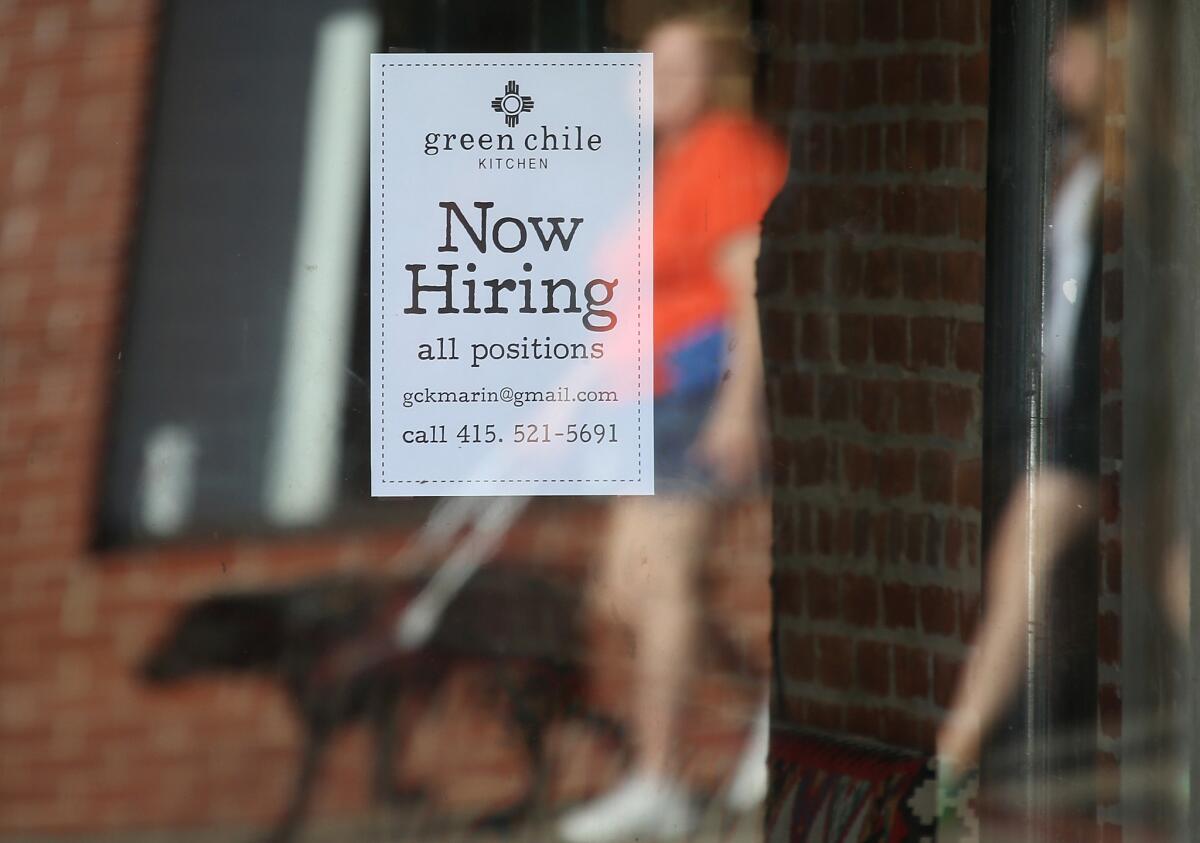A look at the economic shadows for 2015

Over the last couple of days, economists Justin Wolfers of the University of Michigan and Tyler Cowen of George Mason University engaged in a round of debate over the biggest unknowns facing the world economy in 2015. (H/T to Kevin Drum, who found the discussion rather too dour for his taste.)
Itâs natural for any such eyeballing of the murky future to be pessimistic, on balance -- who would risk sounding like a Pollyanna, given the events of recent years? But Wolfers and Cowen have done as good a job as one might ask at identifying the possible potholes.
Wolfers questions, among other things, whether the decline in the U.S. unemployment rate -- now down to 5.8% from a peak of 10% in October 2009 -- really translates into full employment, as traditional economic theory would have it.
Itâs quite possible, he suggests, that the rate is skewed by labor force dropouts, including aging workers, discouraged workers and the long-term unemployed, many of whom could be tempted back into working by a tighter labor market reflecting higher demand and better pay. (We examined what has become of Americaâs âmissingâ workers a few weeks ago.) That issue feeds into the question of how low unemployment can go without triggering inflation. Wolfers thinks it could be 4% or even less.
That prompts him to ask whether the Federal Reserve might raise interest rates too early, out of fear of employment-driven inflation that may be further off than the Fed thinks. âHigher interest rates could slow the economy,â he warns.
Wolfers tops off his âunknown unknownsâ by asking how a slowdown in the rest of the world, including Japan, Europe and China, might affect Americaâs recovery. Can the U.S. sustain economic growth that outpaces that of almost all its major trading partners? He says no, and itâs hard to argue with him.
The biggest unknown of all may be the impact of lower oil prices. Theyâll drive the Russian economy to the cliff even faster than Putinâs policies alone, but despite their positive effect on the household budgets of millions of Americans, theyâre not an unalloyed blessing, since the U.S. is one of the worldâs leading oil producers.
Cowen agrees with most of Wolfersâ points and adds some of his own. He also worries about whether the Russian economy âcan manage a graceful declineâ and guesses no. âItâs hard to see what lies around the corner or even to outline scenarios.â
Cowenâs most pessimistic empirical prediction is that continued U.S. economic growth will fail to produce significant wage growth. He invokes a recent paper on wage stagnation by veteran White House economic advisor Barry P. Bosworth, who says that âthe new phenomenon (in real wage growth) is the decline in laborâs share of income for which we have no satisfactory explanation.â
As a coda, Cowen offers a roster of apocalyptic possibilities for 2015: the stock market may turn out to be a bubble ending in âa 1987-style crash,â a nuclear weapon may go off somewhere, the Supreme Court may rule against Obamacare subsidies. Terrorism. Avian flu. Itâs all enough to prompt the bartender to fill your glass to the brim on New Yearâs Eve, hangover be damned.
Keep up to date with the Economy Hub. Follow @hiltzikm on Twitter, see our Facebook page, or email [email protected].
More to Read
Inside the business of entertainment
The Wide Shot brings you news, analysis and insights on everything from streaming wars to production â and what it all means for the future.
You may occasionally receive promotional content from the Los Angeles Times.










